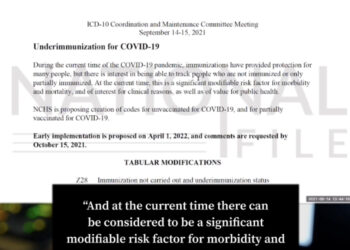Last Updated on October 21, 2020
In the aftermath of one of the biggest censorship campaigns ever executed on social media, the chairman of the Federal Communications Commission is moving forward to examine and clarify protections granted to social media platforms.
FCC Chairman Ajit Pai said Thursday he plans to instruct his commission to clarify Section 230 of the Communications Decency Act. That section grants liability protections to social media companies such as Twitter and Facebook.
“The Commission’s General Counsel has informed me that the FCC has the legal authority to interpret Section 230,” Pai said in his statement.
To date, Section 230 has allowed social media companies to enjoy the protections of the First Amendment Right to free speech without the prohibitions on censorship – and litigation associated with censorship – that go along with that right.
Pai tweeted that, “The US Department of Commerce has petitioned the Commission to ‘clarify ambiguities in section 230.’”
I intend to move forward with an @FCC rulemaking to clarify the meaning of #Section230.
Read my full statement below. pic.twitter.com/LhUz5XMdSC
— Ajit Pai (@AjitPai) October 15, 2020
Earlier this week, US Supreme Court Justice Clarence Thomas said courts have relied upon ‘policy and purpose arguments to grant sweeping protections to Internet platforms’ that appear to go far beyond the actual text of [section 230].”
“As elected officials consider whether to change the law, the question remains: What does Section 230 currently mean?” Thomas continued. “Many advance an overly broad interpretation that in some cases shields social media companies from consumer protection laws in a way that has no basis in the text of Section 230.”
Sen. Ron Wyden (D-OR), took issue with Pai’s claim to authority over the clarifying process, tweeting, ““The FCC does not have the authority to rewrite the law, and Ajit Pai can’t appoint himself commissioner of the speech police.”
The FCC does not have the authority to rewrite the law, and Ajit Pai can't appoint himself commissioner of the speech police. Read my comments with former-Rep. Cox on why this process is so deeply flawed. https://t.co/7JxSSKNmRR
— Ron Wyden (@RonWyden) October 15, 2020
Wyden’s statement, in and of itself, suggests that a “speech police” already exists.
Pai’s statement of action on section 230 comes after complaints by the President and others that social media is biased against conservatives.
Facebook, and especially Twitter, faced widespread criticism from both sides of the political divide Wednesday and Thursday for blatantly censoring social media posts on the New York Post story about Hunter Biden and his facilitation of collusion between his then-Vice President father and a Ukrainian oil tycoon.





















